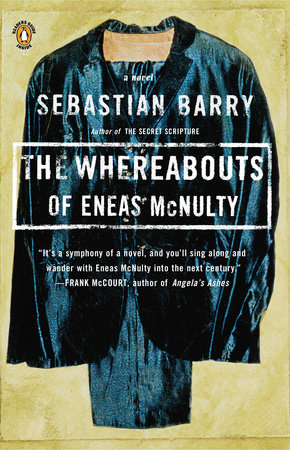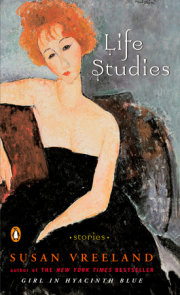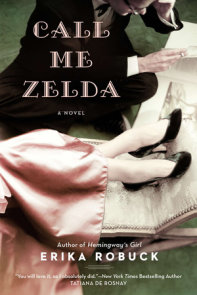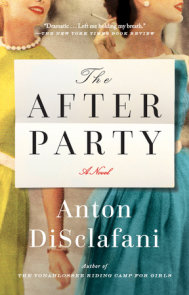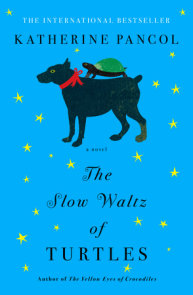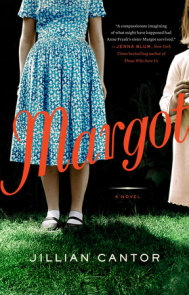READERS GUIDE
Questions and Topics for Discussion
INTRODUCTION
In the years between 1916-1922, when southern Ireland was on the verge of gaining its independence, there were the nationalists—men and women who fought side by side to gain Ireland’s freedom from Britain—and there were the Crown forces—made up of soldiers, the Royal Irish Constabulary, and, later, the hated Black and Tans. And there were also men and women who were ill-prepared or unwilling to live political lives: people who refused or were unable to take sides and, as a result, were shunned by their families, communities, and their country. Sebastian Barry’s The Whereabouts of Eneas McNulty is the story of one such man, of good intentions and their sometimes disastrous effects, and the struggle between the personal and the political. And it is the story of a man exiled from a country that bewilders and rejects him, but which he loves nonetheless.
Eneas McNulty is born in the first year of the twentieth century in County Sligo in the west of Ireland. The earnest and hard- working McNulty family is caught up in the politics of their homeland. Eneas’ sister, Teasy, prays on her knees for the Irish nationalist Michael Collins. Even his younger brother Jack—who will soon wear a British uniform—understands the unwritten code of politics around him. But in Eneas, Barry has created the ultimate innocent who becomes overwhelmed, perplexed, and finally accused by his surroundings and the people that inhabit them. In a world of hard men, he remains a kind of experienced child. It is this lack of guile that will be his downfall, but it is also the richness of Eneas’s perspective, despite the harsh reality of the world around him, that will be his redemption.
After a stint with the British Merchant Navy, Eneas returns to a post-World War I Ireland that is—unbeknownst to everyone—poised on the brink of civil war. Desperate for work, Eneas finds there is little to be had and the only job open to him is as a policeman in the Royal Irish Constabulary: a catastrophic decision in the political climate of the times, where other men are becoming another kind of soldier, dark and intent on Irish freedom. Eneas’s accidental proximity to the murderous Black and Tans puts him on the IRA’s blacklist for the rest of his life. Jonno Lynch, Eneas’s closest childhood friend who is now increasingly involved with the local revolutionaries, delivers the death sentence. When Eneas witnesses his sergeant’s murder, he is abandoned on all sides, simultaneously let go from the police force and asked by Jonno to assassinate a key member of the Tans called the Reprisal Man. Refusing to kill a man and therefore giving up his only chance at getting off the blacklist, Eneas knows he must leave Sligo—and the people who love him—forever. He works on fishing boats in Northern England, fights after his own curious fashion in France as a soldier in the British Army during World War II, and finds his lowest days in Africa with his Nigerian friend, Harcourt. No matter how far he goes, however, at the back of his mind there is always the menace of the dark-coated men who would prefer him dead. Even so, he twice returns to Sligo, unable to resist the pull of home and the hope that time has erased his death sentence.
At the age of seventy, he heads for the last haven of sailors and wanderers, the Isle of Dogs, and opens a hotel with the self-exiled Harcourt. Northern Ireland’s troubles have just begun, thereby reactivating old blacklists and old men. One final time, Eneas faces his childhood friend, Jonno Lynch, and the struggles and conflicts that have unwillingly shaped his flight. And so it is here that he ends his wanderings, “alone, hated, but human on the raveling road,” neglected by history but redeemed by the tragic beauty of a final act of selflessness.
ABOUT SEBASTIAN BARRY
Sebastian Barry is a playwright, novelist, and poet whose best-known play, The Steward of Christendom, has won numerous awards. He lives in Dublin, Ireland.
A CONVERSATION WITH SEBASTIAN BARRY
It has been many years since you last wrote a novel, and The Whereabouts of Eneas McNulty comes on the heels of much success as a playwright. What prompted you to return to the novel? Are there benefits to writing in this form that you feel aren’t achieved as effectively when writing for the stage? Do you plan to continue with both literary forms, or to focus on one or the other?
While I was writing plays over the last ten years I had not given up on the novel form. It had rather given up on me! In the late eighties I wrote a long book which I put away quietly in a drawer. . . Then I was going to write a play about Eneas McNulty, and did so, but the play didn’t work. Slowly it began to take shape as a novel, almost without me realising it. So you might say this novel appeared quite mysteriously and choice didn’t entirely come into it. The crucial aspect, I think, that prevented it being a play was that Eneas McNulty has a sort of silence and confusion at the heart of him. As I usually write plays in long speeches, this was awkward, because Eneas did not want to speak in that way. The interior world of the novel, the descriptive and psychological world, was more suitable for the painting, you might say, of Eneas McNulty.
I will write another novel as soon as the gods allow, or whoever is in charge of these things!
Besides the hero’s name, there exist parallels between Eneas McNulty and Virgil’s wanderer, Aeneas. Mindful of Joyce’s use of Homeric myth, did you approach this technique with trepidation, or did it seem naturally appropriate for the telling of Eneas’s story?
Actually the background of the Aeneid is quite informal, in that, yes, I read Latin at University years ago and read Virgil carefully, and of course as an Irish person it interested me how the Roman writers had absorbed the Greeks and turned them to their own imperial purposes, as you might say. All our founding myths in Ireland have been based on revolutions and new beginnings and I suppose I wanted to write a book that had as its shadow the reverse of that, a kind of unfounding myth, if there is such a word. An anti-epic with an ambiguous hero. Because we have had in Ireland in recent years to try to accommodate the two traditions, Nationalism and Unionism (those who want to keep union with Britain), in order to create a new ground for a new beginning. Because when we have concentrated on either one or the other, terrible exclusions and murders have taken place, and unendingly. By writing this shadowy great-uncle of mine back into the book of life, I was trying to put something back on the balance. Because if we exclude a part of ourselves, even a disreputable or reprehensible part, we by extension exclude and erase a part of the family, and by further extension a part of the nation. The miraculous fact is Ireland no longer wants victory of one over the other, Nationalism over Britishness, in general terms, but only peace, ordinary peace.
When I was looking for a name that I could use in my book, I was having difficulty finding something. One night I was watching television and on the news was an account of a car accident in the midlands. One of the witnesses was a local man and his name appeared briefly on the screen. . . Eneas McNulty. It surprised me that the name Aeneas had survived in Ireland, but when you consider the old hedge schools, whose penniless masters spoke more Latin and Irish than English, perhaps it’s not so surprising. It seemed the right name for an Irish wanderer. But as you can see, these informal parallels are a world away from Joyce, who modelled his book so intently and masterfully and artfully on the Greek structure.
The New York Times has said that the protagonist was inspired by your great-uncle. Could you briefly discuss his life and how it haunts the novel?
I was told as a child about him, Charlie was his name. He had disappeared in the twenties or thereabouts because of something he had done to earn himself some kind of death threat. It was all kept very vague in the telling, as you might expect. In the sixties my grandfather, his brother, tracked him down through the records of the British Army Pensions Office, to a hotel on the Isle of Dogs in London. When my grandfather went there he was told that Charlie did live there, but was out that day, and to come back in the morning. Next morning my grandfather duly returned, but found the little hotel burned to the ground. He assumed that Charlie had taken flight when he heard “a man from Sligo” was looking for him and burned the hotel to cover his traces. Or indeed my grandfather feared he might have been followed from Sligo by his brother’s enemies, and that they had caught him and killed him. Either way, he never could find any trace of his brother again. My grandfather died some years later. Just in the week I finished the book, my aunt rang my mother to say that she had received an unexpected bequest—a few pounds from Uncle Charlie. He had just died in an old people’s home in London. For a moment I entertained the notion that he might have been transmitting his story to me as he lay dying, but perhaps that is merely fanciful.
Early in the book, you recreate the mood of a people on the brink of a civil rebellion, and capture emotions and conventions that, while perhaps appropriate in those volatile times, seem unduly harsh to today’s readers. Was this familiarity with the ethos of that time a natural product of growing up in Ireland, or was it something that required research in order to accurately depict the mood of the period?
I began to first think about the period when I was writing my play The Steward of Christendom, which is about a policeman in the Dublin Metropolitan Police at that time, which, unlike the Royal Irish Constabulary, was unarmed. I grew up myself in the sixties and seventies, in a middle-class suburb of Dublin, where very little of contemporary matters reached us. It is one of the strangenesses of modern Ireland that the great trouble and tragedy of the North of Ireland after 1969 took a long while to penetrate many minds in the South, and indeed for many years people tried to put it to the back of their minds even when it did. It was all happening to Them, up There. The victory of recent years is that we now think of events like the overwhelming bombing at Omagh as happening to us, to everyone on the island.
So you might say my own understanding of the North came late, but when it did come, it burned in deep. Furthermore, in 1974 in Dublin there was a dark day of car bombs, when about twenty-eight people, ordinary shoppers, were killed. All of us in the city that day experienced just a fragment of what the people in North endured day in day out. Added to this, my own reading in the history of the war of independence, and then the civil war that came quickly after it, shocked me in some permanent way. The civil war was a time of exceptional savagery, and our history books at school didn’t dwell on this less admirable period. But the wounds of that time still informed everything about modern Ireland. Any news story you might have read about Bosnia is well-echoed in the history of the Irish civil war, things done to each other by people who a year before had been fighting side by side for freedom. It seemed to me that to erase the memory of the civil war was also an erasure of part of oneself, and again of nation. A real nation has to acknowledge also the section of itself that is murderous and dangerous and deeply uncivil, for completeness if for nothing else.
The book speaks eloquently on the ramifications of the politics of unrest on individual lives. Was this a case of the writer’s environment simply manifesting itself in his work, or was it an end you hoped to achieve when you began writing the story of Eneas McNulty?
The actual story of Eneas, as it unfolded, consistently surprised me. It interested me greatly that he was on the “wrong” side of official history and yet might be an innocent man, enduring the punishments and exclusions of the guilty. It’s hard for us now to realize that before independence everyone in Ireland was born British, and that the police force and the army had a history of hundreds of years, and were manned largely by Irishmen and Catholics to boot. That history is much more complicated and even unsolvable and more relentlessly meaningless in some ways than we would like. It was an act of foolishness and shortsightedness on Eneas’s part to join the police when he did, but at the same time the police had provided a refuge and a living for many an Irish family. All such have been demonised by official history, understandably, but Irish history is an extraordinary tapestry of light and shade. It is not a clear-cut cartoon of Cops and Robbers, Cowboys and Indians, Goodies and Baddies, Heroes and Traitors. It’s all mixed and tumbled together; and in a way, this fact, which bedevilled us for so long, may in the end prove our salvation.
DISCUSSION QUESTIONS









